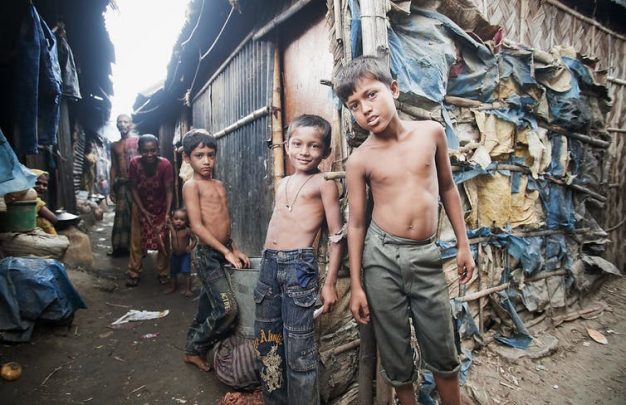
UN & Save the Children will transform city slums into ‘bold child-friendly public spaces’
A new partnership between the United Nations (UN) and Save the Children has set its sights on improving the lives of children living in city slums.
Implementing ‘bold child-friendly public space initiatives’ is at the heart of this landmark agreement, which is responding to a lack of clean and green public areas, predominantly in those low-income urban communities where they are most needed.
The United Nations Human Settlements Programme (UN-Habitat), the UN agency responsible for promoting sustainable cities, and Save the Children, say that childhood is mostly and increasingly experienced in urban areas, and the number of children living in slums is expected to triple by 2050 to around 1.5 billion.
One in four urban children, they add, currently live in slums and informal settlements, and that issues like climate, conflict and economic-induced migration will only further accelerate these urban inequalities.
We will be working to ensure children’s needs shape the urban built environment
Michal Mlynar, UN Assistant Secretary-General and Acting Executive Director of UN-Habitat, said: “Through this partnership, we will be working to ensure that children’s needs and priorities shape the urban built environment. Of all the areas that will be urban in 2050, 75 per cent are yet to be built. UN-Habitat is instrumental in supporting governments to develop city plans, national urban plans, and slum upgrading programmes that work for all, including our children.
“We are excited to work in partnership with Save the Children who have more than 100 years of experience in transforming the lives of children and creating opportunities for children and youth.”
Inger Ashing, CEO of Save the Children International, said: “The estimated 500 million children that live in slums and informal settlements today face multiple deprivations including lack of access to safe and secure housing, clean, and green play spaces, safe streets, running water, electricity, suitable toilets, decent schools, and health services.
‘Supporting children’s physical and mental well-being’
Transforming cities and slums into clean, healthy, and sustainable environments is central to ensuring children’s rights are met and that they are able to survive, learn and be protected from harm.”
At the heart of this partnership is the desire to help ensure children’s and caregivers’ voices, needs, and priorities are properly considered and reflected in national and local urban plans and policies, and programmes that are designed to upgrade slum areas. Both agencies will also be able to jointly advocate and communicate in global forums and to elevate urban issues affecting children living in cities and slums on the national agendas of Member States and at the World Urban Forum.
“Access to green and safe spaces is vital for supporting children’s physical and mental well-being, learning, play, and social relations – these spaces also provide much-needed cool shaded areas for local communities during heatwaves and a place for community events and gatherings,” say the partners.




